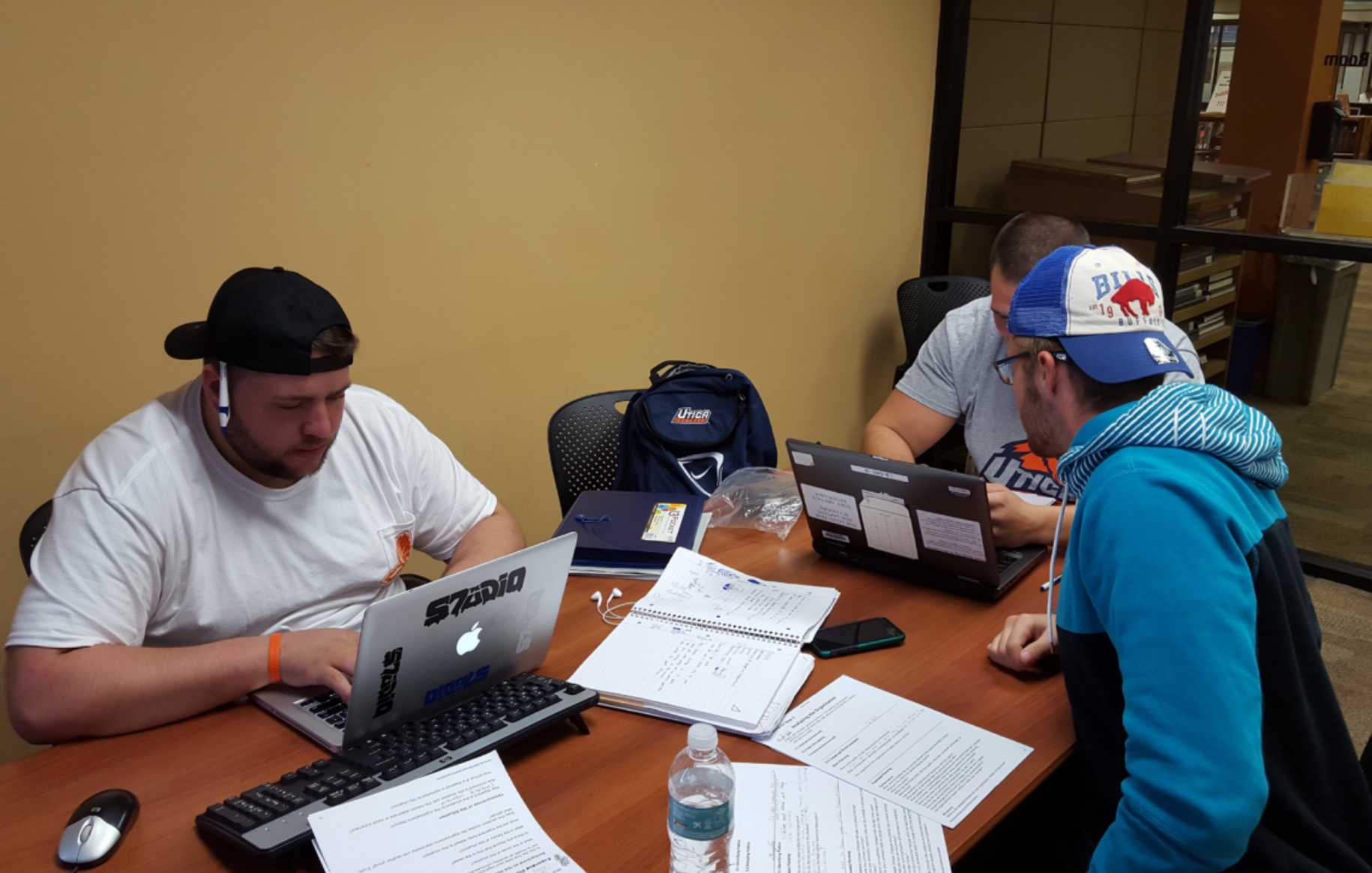
Amanda Fanelli
Staff Writer
Throughout a student’s college career, there will be times when it is required to work in groups. It is imperative to learn strategies to not only bring your best effort to the group but to motivate the other members in your group to work hard. Key components of having a successful group are effective communication, good listening skills and being organized.
A third-year physical therapy major, Tyler St. Louis has only had a few group projects so far. He recalls one from a group dynamics class when the students were asked to work in groups to plan a lesson that would teach an entire section of the textbook to their fellow classmates.
“Communication is the key to success,” St. Louis said. “The group must establish a common form of communication and be able to execute things effectively using that communication strategy.”
St. Louis feels that if a conflict arises, the group should communicate with each other to identify the issue and discuss how it could be corrected. That way, the problem is noticed and resolved.
“Stay on top of it or it will only get worse,” St. Louis said.
St. Louis prefers to work individually first and then collaborate as a group.
“I think more clearly when I have a minute to myself in which I can then bring those ideas back to the group as a whole,” St. Louis said.
Shae Kallasy, a senior nursing student, said she is not asked to do a lot of group work in class but does have to work in a group setting practicing nursing skills. Some of the skills that she tests on her classmates are measuring blood pressure, heart rate, and respirations.
Kallasy said the best way to execute group work is to make sure to set times and dates of when each phase of the project is to be completed. Kallasy said she has definitely run into disagreements with her groups.
“In this program, with these people, we often just talk it out,” Kallasy said. “Sometimes tensions are high, but there are so few of us in the program that we often work in the groups we choose and have become close with our group members.”
Kallasy said she has rarely faced an issue when someone does not do their work because they all feel they need every point they can get.
She prefers to work on her own, because she knows she will get the work done and it will be the best work it could be done on time and in her own way.
Austyn Diller, a junior chemistry student, has encountered many group projects during his last two years at UC. According to Diller, to execute a group task successfully, group members should be able to rely on each other to perform at their top level. Students must organize a plan to attack the task at hand. Diller personally handles disagreements by talking to the person he has an issue with.
“If that doesn’t work, then it’s time to be realistic, this is for a grade so it shouldn’t be hard to suck it up and get through it because if you don’t, you both suffer,” Diller said. “In the case where others are endangering your odds at obtaining an A, I feel you should talk to the teacher to figure out a good solution to the problem.”
Diller prefers to work in a group setting because he loves “how people from different backgrounds can come together and potentially put together a masterpiece for the A,” Diller said. “Just remember that you are all working together to try and receive the best possible grade.”




































































































































